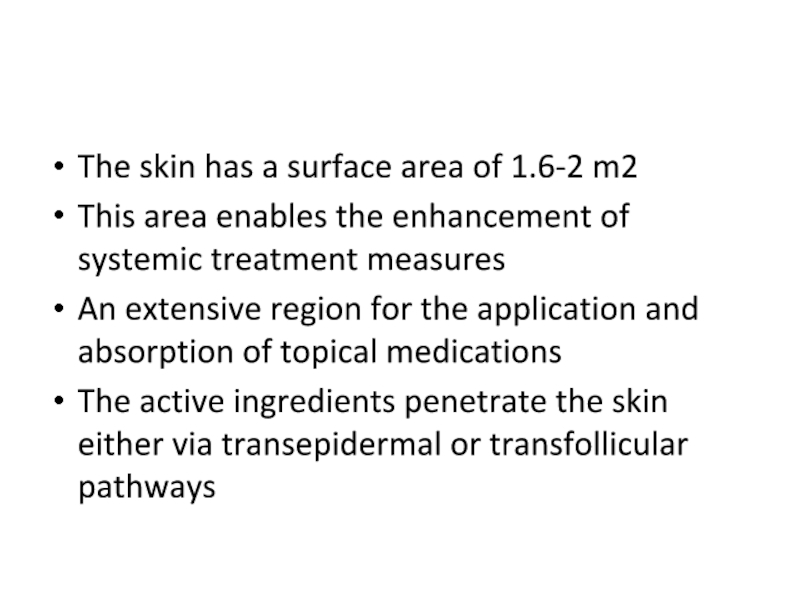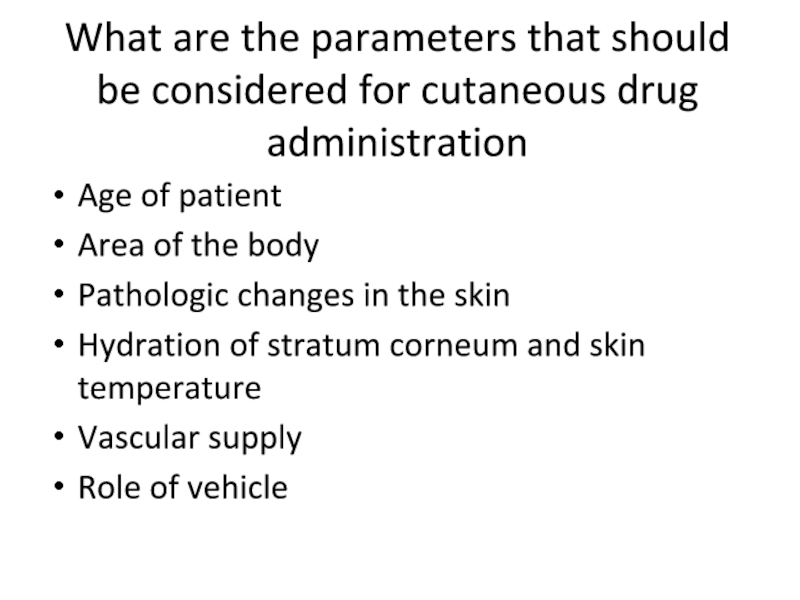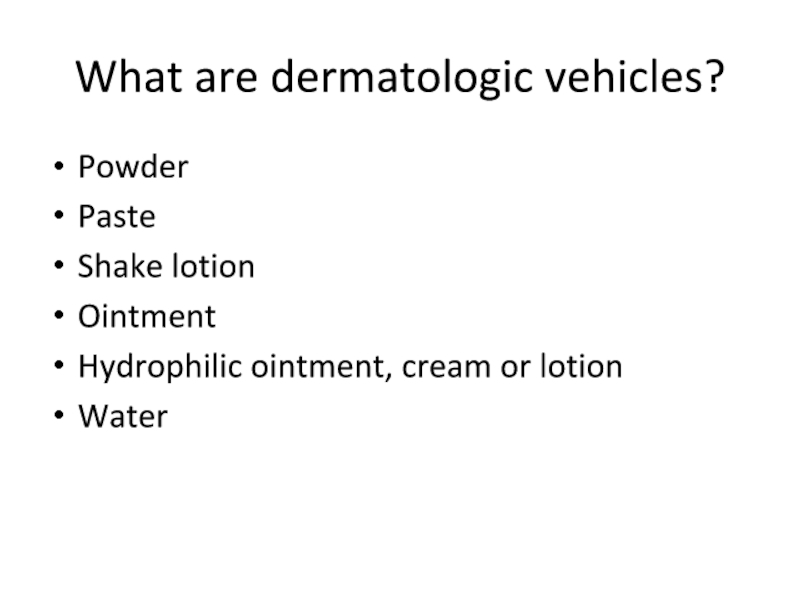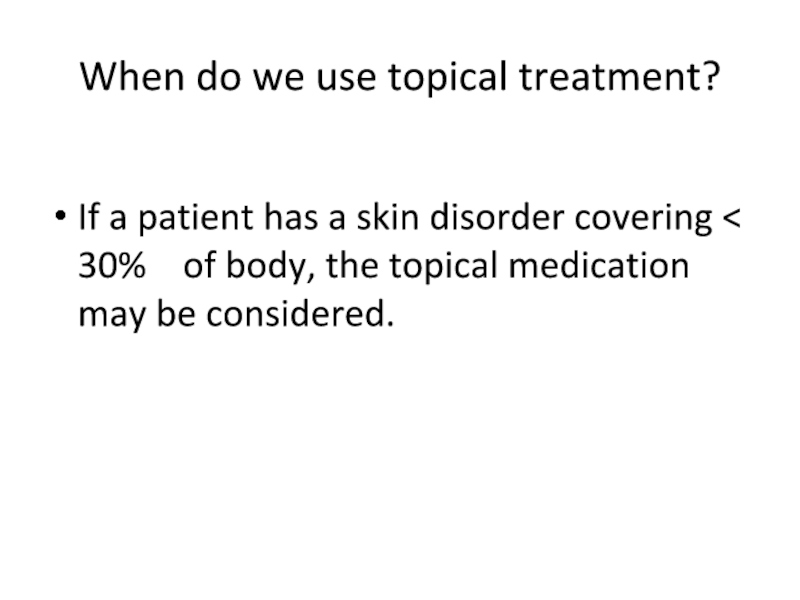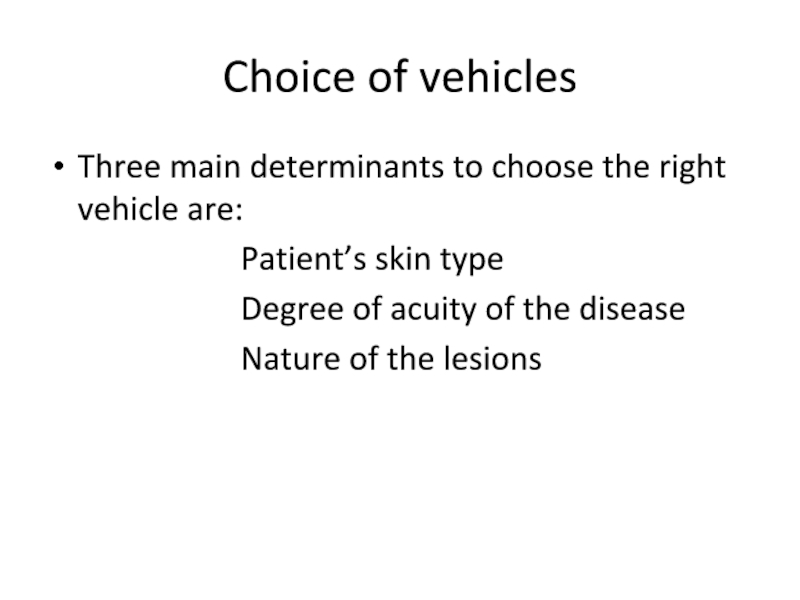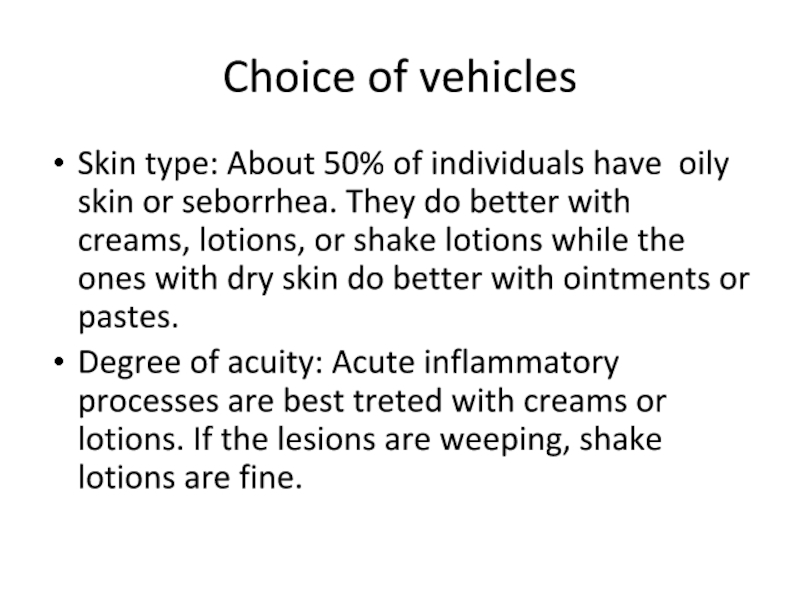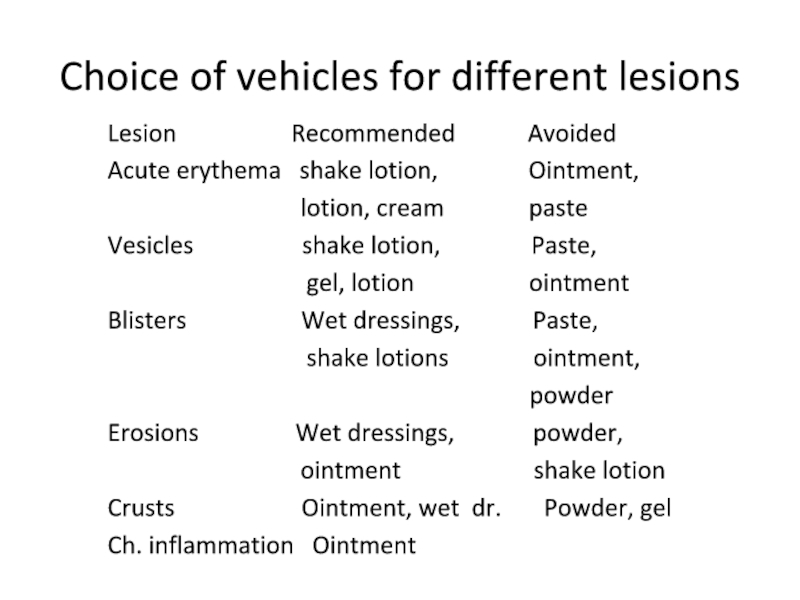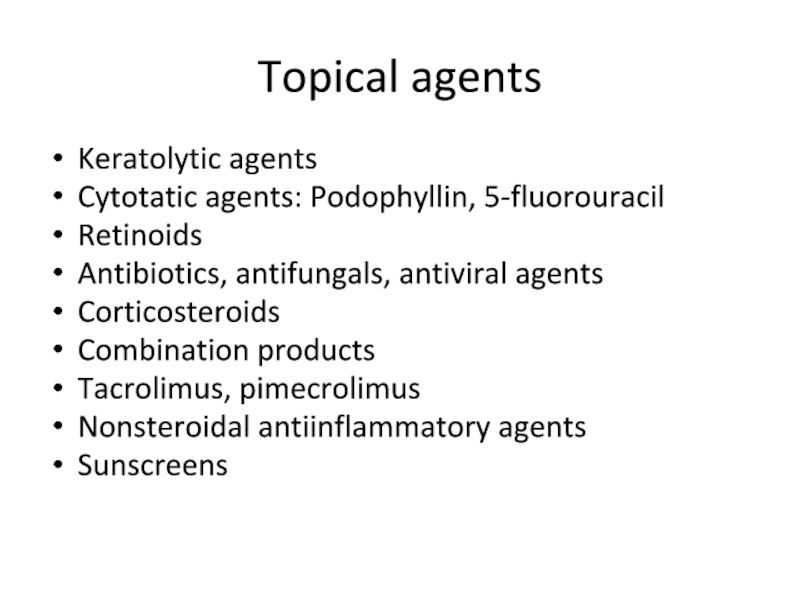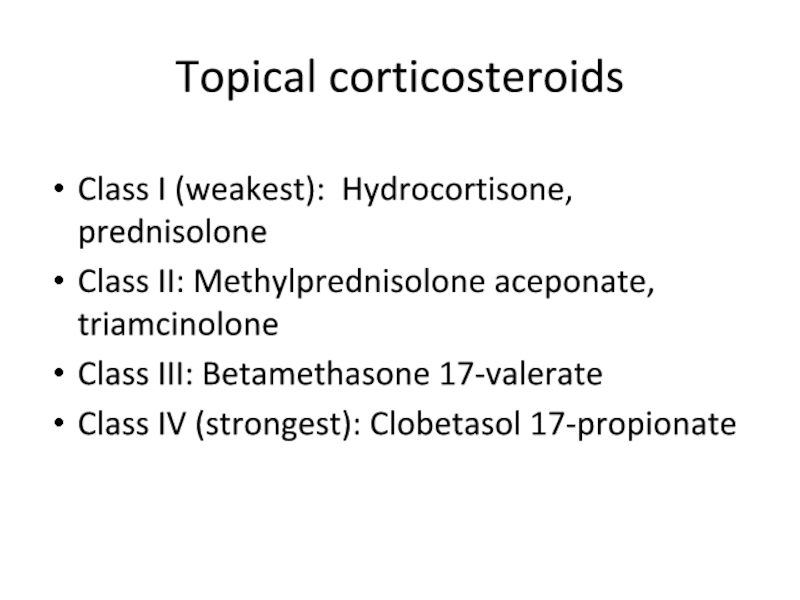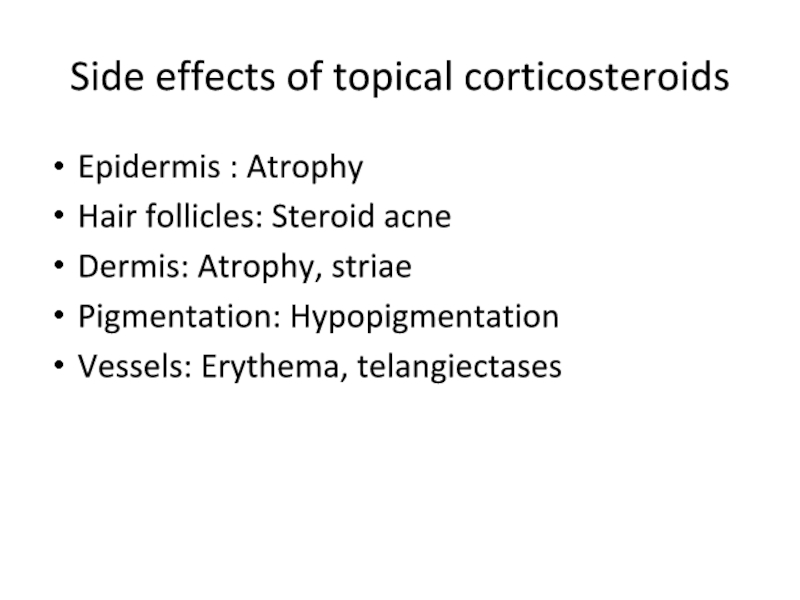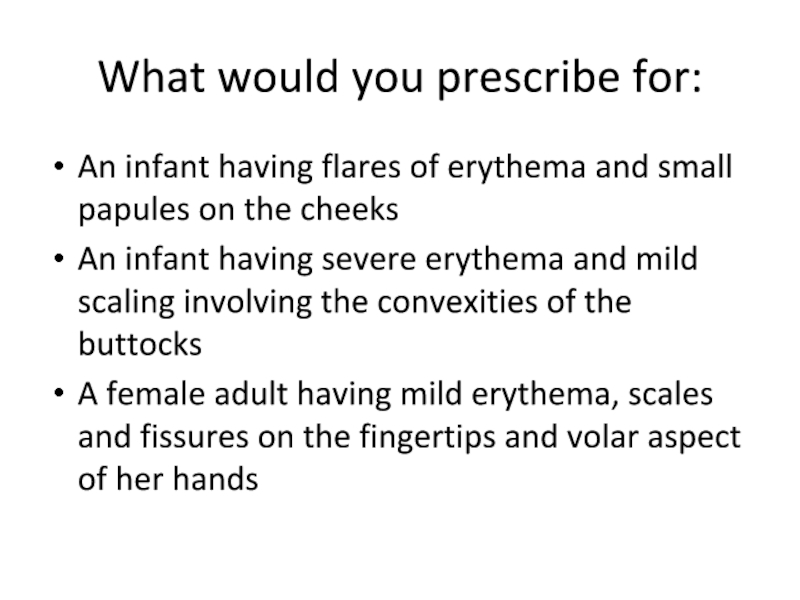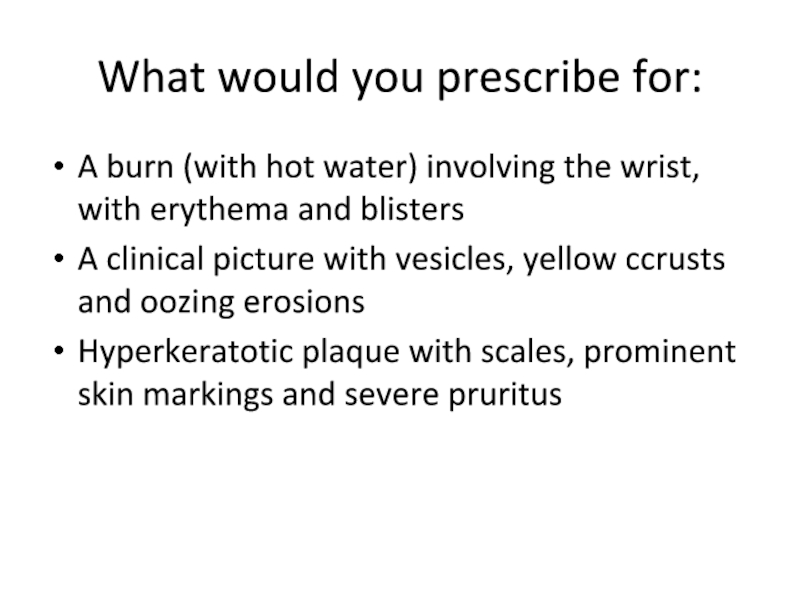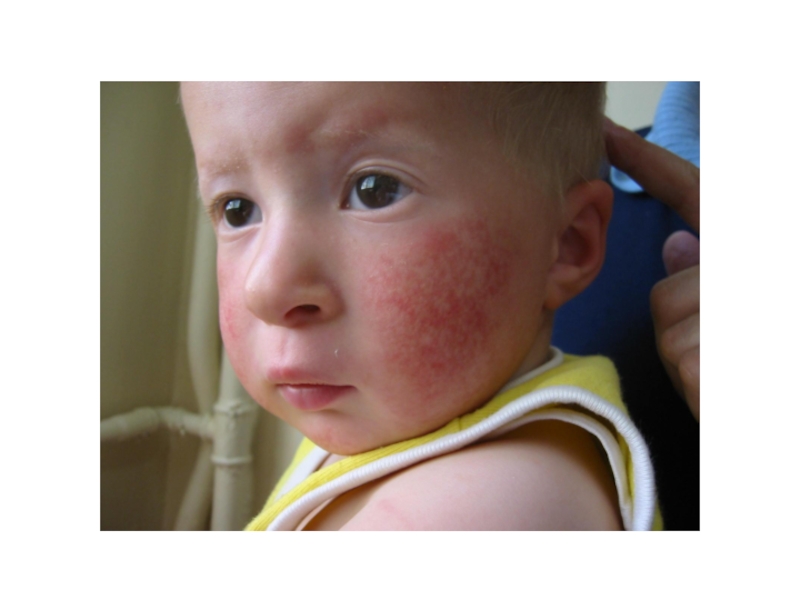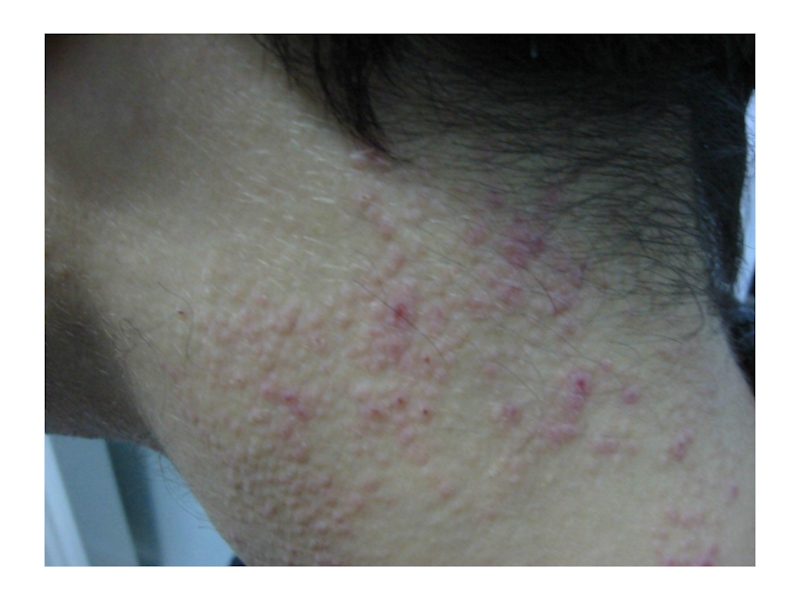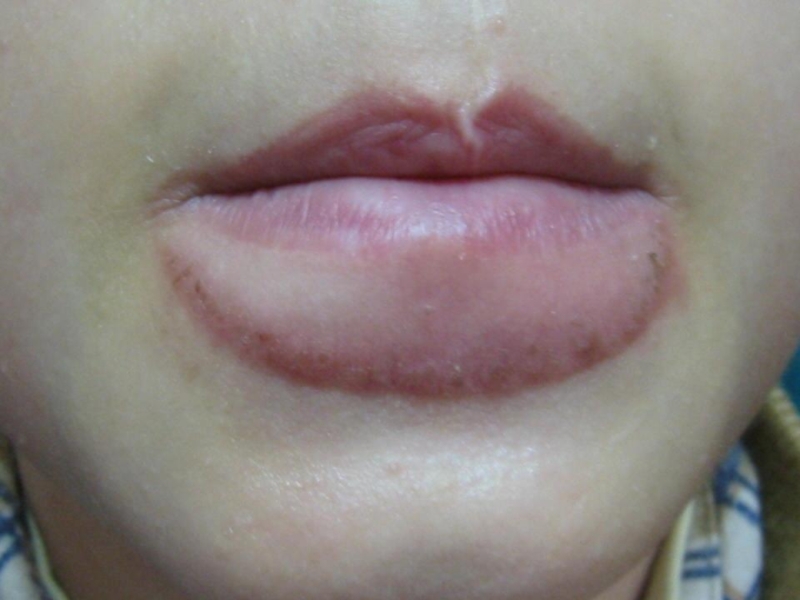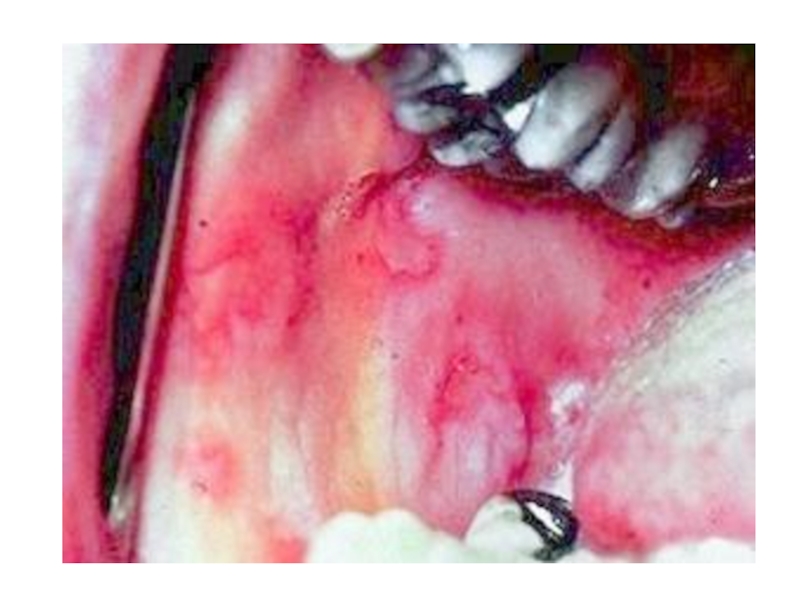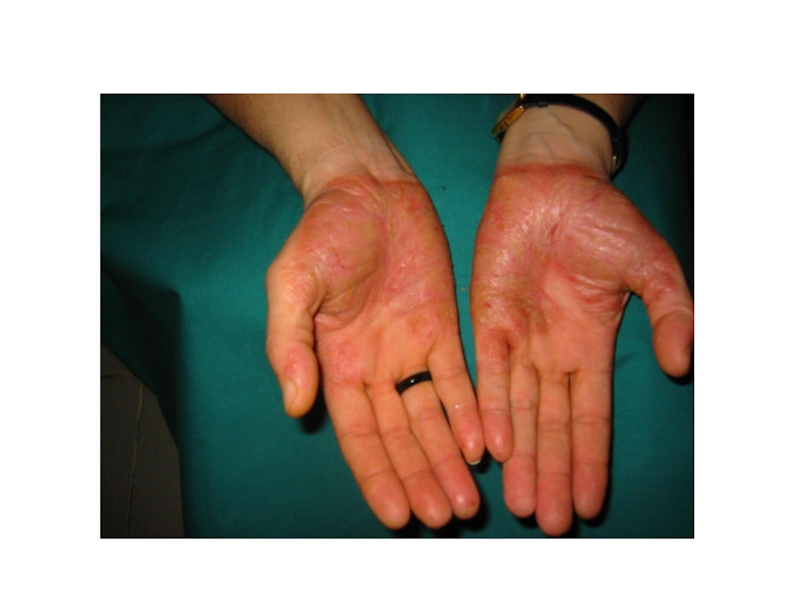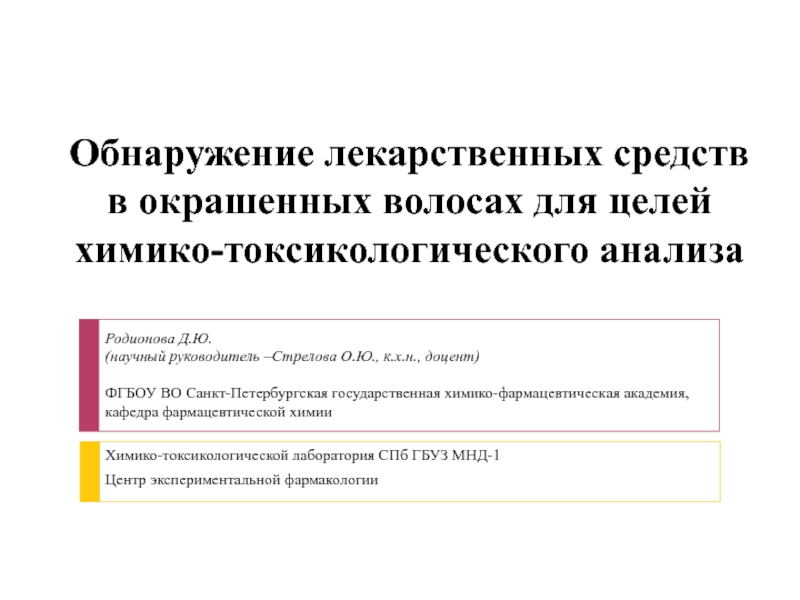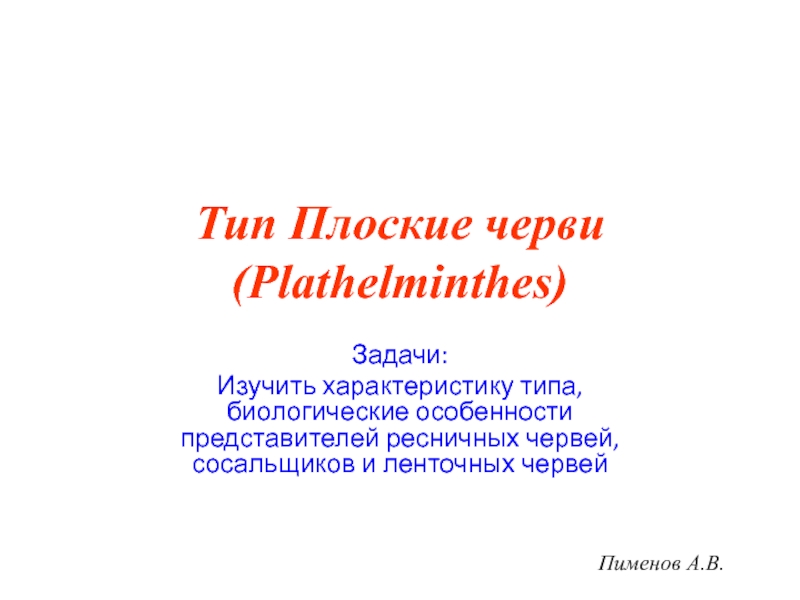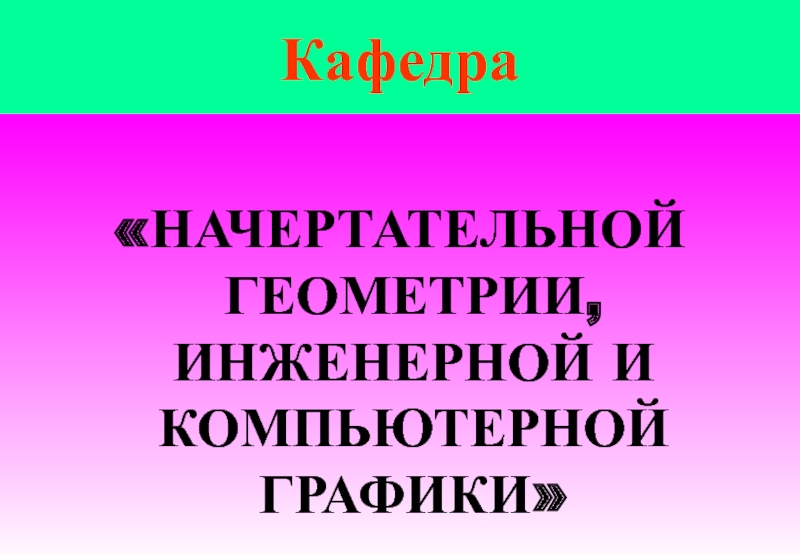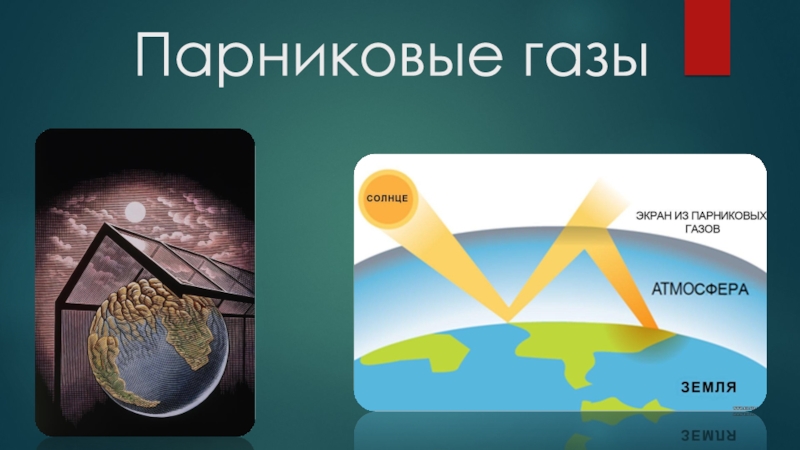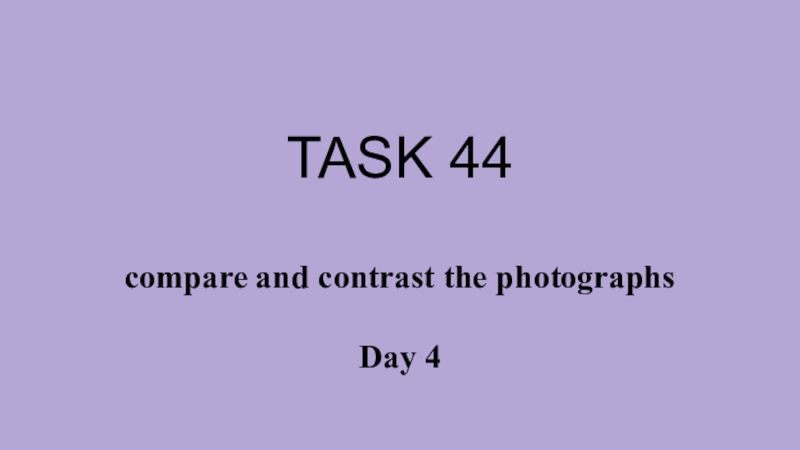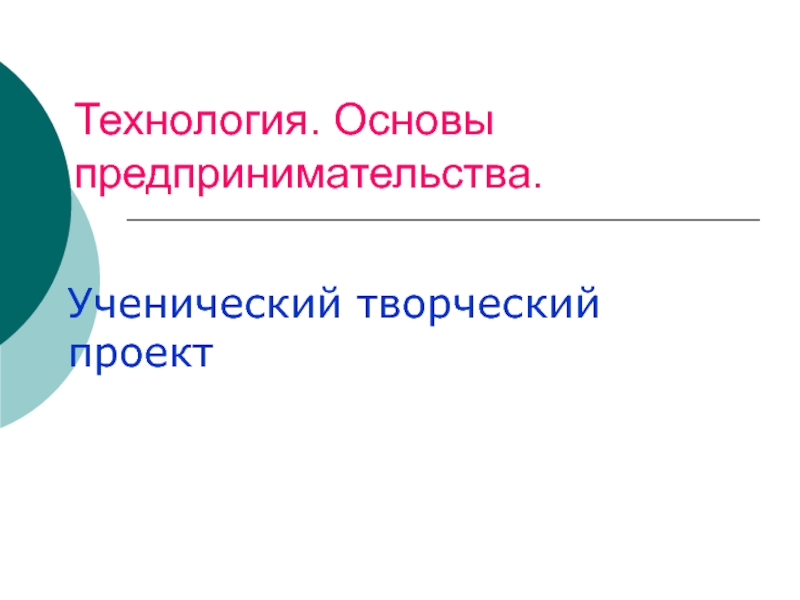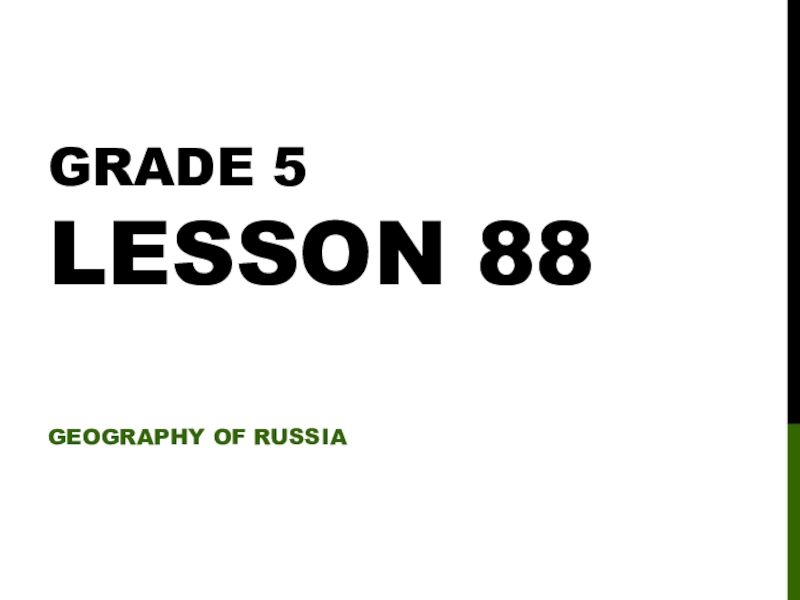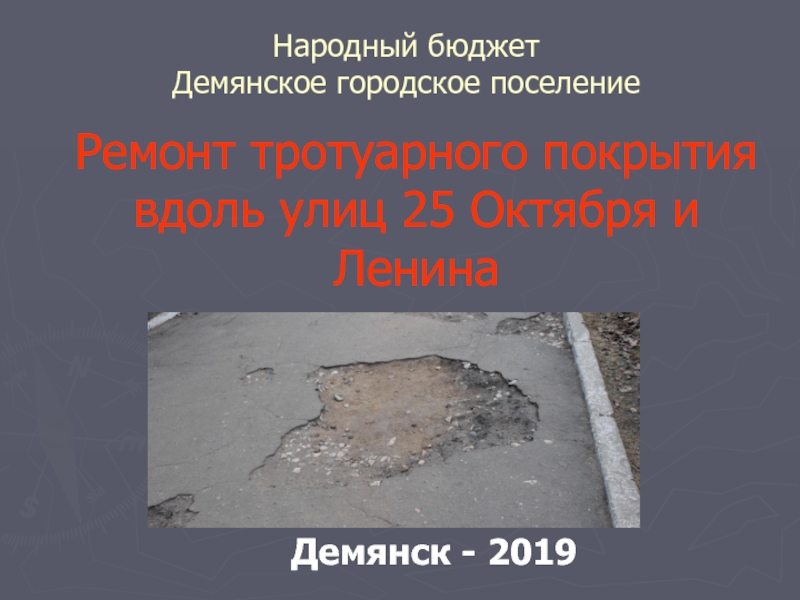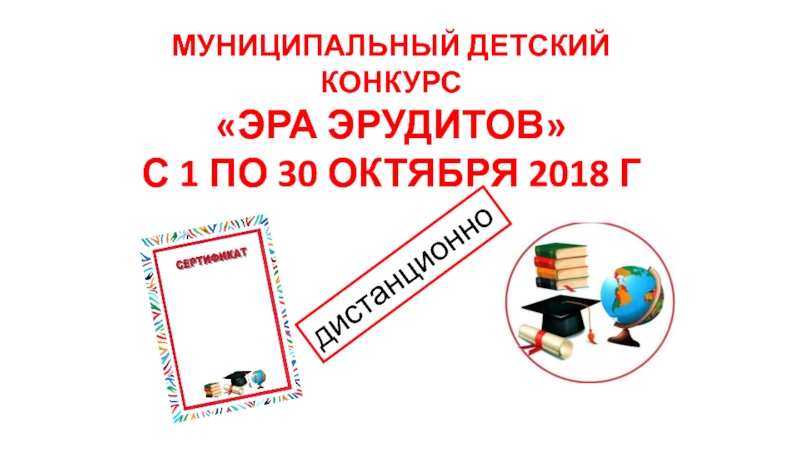Слайд 1Principles of Topical Treatments in Dermatology
Doç. Dr.Burhan Engin
Слайд 2The skin has a surface area of 1.6-2 m2
This area
enables the enhancement of systemic treatment measures
An extensive region for
the application and absorption of topical medications
The active ingredients penetrate the skin either via transepidermal or transfollicular pathways
Слайд 3What are the parameters that should be considered for cutaneous
drug administration
Age of patient
Area of the body
Pathologic changes in the
skin
Hydration of stratum corneum and skin temperature
Vascular supply
Role of vehicle
Слайд 4What are dermatologic vehicles?
Powder
Paste
Shake lotion
Ointment
Hydrophilic ointment, cream or lotion
Water
Слайд 5When do we use topical treatment?
If a patient has a
skin disorder covering < 30% of body, the topical
medication may be considered.
Слайд 6Choice of vehicles
Three main determinants to choose the right vehicle
are:
Patient’s skin type
Degree of acuity of the disease
Nature of the lesions
Слайд 7Choice of vehicles
Skin type: About 50% of individuals have oily
skin or seborrhea. They do better with creams, lotions, or
shake lotions while the ones with dry skin do better with ointments or pastes.
Degree of acuity: Acute inflammatory processes are best treted with creams or lotions. If the lesions are weeping, shake lotions are fine.
Слайд 8Choice of vehicles for different lesions
Lesion
Recommended
Avoided
Acute erythema shake lotion, Ointment,
lotion, cream paste
Vesicles shake lotion, Paste,
gel, lotion ointment
Blisters Wet dressings, Paste,
shake lotions ointment,
powder
Erosions Wet dressings, powder,
ointment shake lotion
Crusts Ointment, wet dr. Powder, gel
Ch. inflammation Ointment
Слайд 9Topical agents
Keratolytic agents
Cytotatic agents: Podophyllin, 5-fluorouracil
Retinoids
Antibiotics, antifungals, antiviral agents
Corticosteroids
Combination
products
Tacrolimus, pimecrolimus
Nonsteroidal antiinflammatory agents
Sunscreens
Слайд 10Topical corticosteroids
Class I (weakest): Hydrocortisone, prednisolone
Class II: Methylprednisolone aceponate, triamcinolone
Class
III: Betamethasone 17-valerate
Class IV (strongest): Clobetasol 17-propionate
Слайд 11Side effects of topical corticosteroids
Epidermis : Atrophy
Hair follicles: Steroid acne
Dermis:
Atrophy, striae
Pigmentation: Hypopigmentation
Vessels: Erythema, telangiectases
Слайд 12What would you prescribe for:
An infant having flares of erythema
and small papules on the cheeks
An infant having severe erythema
and mild scaling involving the convexities of the buttocks
A female adult having mild erythema, scales and fissures on the fingertips and volar aspect of her hands
Слайд 13What would you prescribe for:
A burn (with hot water) involving
the wrist, with erythema and blisters
A clinical picture with vesicles,
yellow ccrusts and oozing erosions
Hyperkeratotic plaque with scales, prominent skin markings and severe pruritus

